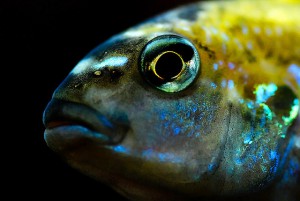Nanomaterials interact with agricultural pesticides, increasing toxicity to fish
Fish populations are exposed to a large number of environmental pollutants that run off from agricultural, industrial and urban land. As technology progresses, so do the number of new pollutants in our environment. A new study published in Ecotoxicology and Environmental Safety has found that carbon nanotubes—a type of nanomaterial used for cleaning purification in aquaculture operations—may interact with pesticides, increasing the toxic effects to exposed fish. Scientists exposed Nile tilapia to small doses of carbon nanotubes, the pesticide carbofuran and combinations of the two. They found that the exposure to the carbon nanotubes alone did not result in toxicity, but that when fish were exposed to both carbon nanotubes and carbofuran together, the toxicity of carbofuran increased five times and the fish experienced decreases in oxygen consumption and swimming capacity. The authors suggest that the observed result is because nanotubes are likely acting as pesticide carriers, increasing the exposure and accumulation of these chemicals in fish.



